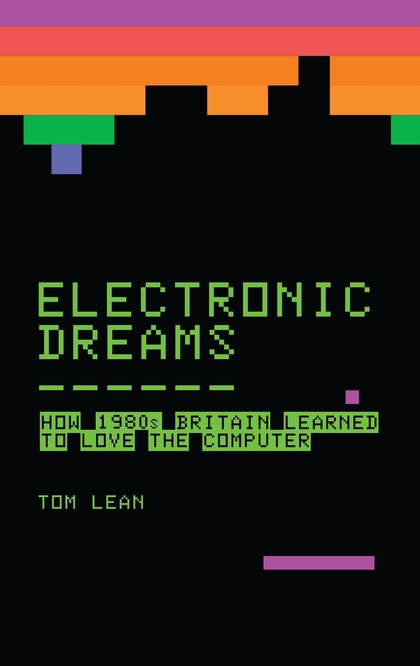Having gotten myself an Audible account and some credits I took a gander at the vast number of audio books in the purchasable range carried on the website. This one caught my eye. Not just as it’s title is the same as one of my good lady’s favourite ever movies but also as I was a fan of Clive Sinclair in the 1980’s…not that I knew his face or name…but I did have a ‘Speccy 48k’ and boy did I love it! So what is Tom Lean’s book about?
How did computers invade the homes and cultural life of 1980s Britain?
Remember the ZX Spectrum? Ever have a go at programming with its stretchy rubber keys? How about the BBC Micro, Acorn Electron, or Commodore 64? Did you marvel at the immense galaxies of Elite, master digital kung-fu in Way of the Exploding Fist or lose yourself in the surreal caverns of Manic Miner? For anyone who was a kid in the 1980s, these iconic computer brands are the stuff of legend. In Electronic Dreams, Tom Lean tells the story of how computers invaded British homes for the first time, as people set aside their worries of electronic brains and Big Brother and embraced the wonder-technology of the 1980s.
This book charts the history of the rise and fall of the home computer, the family of futuristic and quirky machines that took computing from the realm of science and science fiction to being a user-friendly domestic technology. It is a tale of unexpected consequences, when the machines that parents bought to help their kids with homework ended up giving birth to the video games industry, and of unrealised ambitions, like the ahead-of-its-time Prestel network that first put the British home online but failed to change the world.
Ultimately, it’s the story of the people who made the boom happen, the inventors and entrepreneurs like Clive Sinclair and Alan Sugar seeking new markets, bedroom programmers and computer hackers, and the millions of everyday folk who bought in to the electronic dream and let the computer into their lives.
I enjoyed the book and it expanded my knowledge greatly about the subject of micro computers but also of the social aspects of 1980’s Britain. If you enjoyed Elite or Jet Set Willy or any of the other ground breaking computer titles of the era then you will enjoy this book. Especially fascinating was the end of the book where the author lays out how the Raspberry Pi came into being and the Sinclair Vega too. The world turns and turns again. If anything Britain is more exciting now for computers and gaming in that manner than it was in the golden 1980’s. Of course real gaming uses miniatures and books but every now and again I enjoy a game of Joust just like the next man in his late 30’s!
If you are at all interested in the subject I recommend this book and if you have some time also the excellent BBC documentary film of a few years back ‘Micromen’ which tells part of the story in a grand way.
GBS

